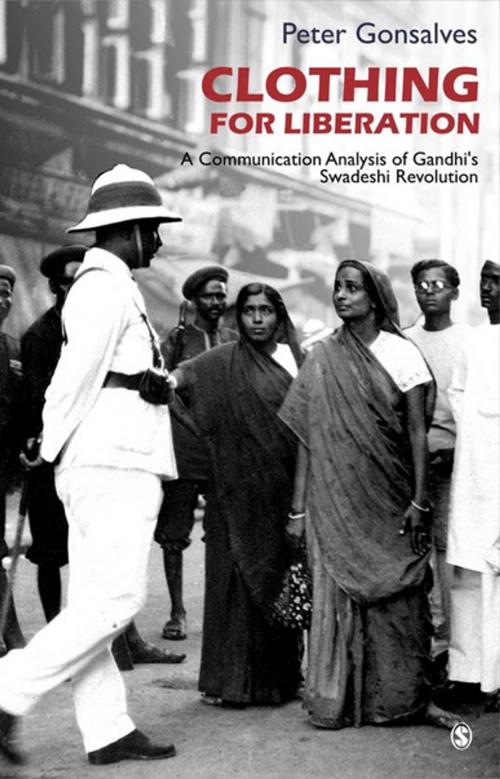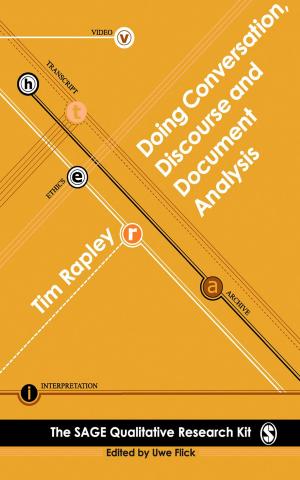Clothing for Liberation
A Communication Analysis of Gandhi's Swadeshi Revolution
Nonfiction, Reference & Language, Language Arts, Communication, History, Asian, Asia, Reference| Author: | Peter Gonsalves | ISBN: | 9789385985829 |
| Publisher: | SAGE Publications | Publication: | March 11, 2010 |
| Imprint: | Sage Publications Pvt. Ltd | Language: | English |
| Author: | Peter Gonsalves |
| ISBN: | 9789385985829 |
| Publisher: | SAGE Publications |
| Publication: | March 11, 2010 |
| Imprint: | Sage Publications Pvt. Ltd |
| Language: | English |
This is the first analysis of Gandhi's dressing style in terms of communication theory and an exploration of the subliminal messages that were subtly communicated to a large audience. Peter Gonsalves chooses three famous theorists from the field of communication studies and looks at Gandhi through the lens of each one, to give us a fascinating and new insight into one of the most famous men from South Asia.
The author first prepares the ground for the theoretical investigation by exploring the breadth of Gandhi's communication skills. He provides essential information on a wide range of Gandhi's communication skills, with a view to proposing interesting areas of research for communication scholars.
The book deals with the qualitative and quantitative aspects of Gandhi's verbal output, his linguistic capacity, his journalistic and letter-writing style, his peace communication in an atmosphere of conflict, his organizational ability and the international repercussions of his mass mediated messages. It also elaborates the different types of non-verbal communication he used, such as silence, fasting, clothing, personal presence and charisma. The book closes with, perhaps for the first time, a Gandhian approach to symbolisation for socio-political change.Photographs of Gandhi in different phases of his life have been used to provide a visual chronology of sartorial change and emphasise the arguments in the book.
This is the first analysis of Gandhi's dressing style in terms of communication theory and an exploration of the subliminal messages that were subtly communicated to a large audience. Peter Gonsalves chooses three famous theorists from the field of communication studies and looks at Gandhi through the lens of each one, to give us a fascinating and new insight into one of the most famous men from South Asia.
The author first prepares the ground for the theoretical investigation by exploring the breadth of Gandhi's communication skills. He provides essential information on a wide range of Gandhi's communication skills, with a view to proposing interesting areas of research for communication scholars.
The book deals with the qualitative and quantitative aspects of Gandhi's verbal output, his linguistic capacity, his journalistic and letter-writing style, his peace communication in an atmosphere of conflict, his organizational ability and the international repercussions of his mass mediated messages. It also elaborates the different types of non-verbal communication he used, such as silence, fasting, clothing, personal presence and charisma. The book closes with, perhaps for the first time, a Gandhian approach to symbolisation for socio-political change.Photographs of Gandhi in different phases of his life have been used to provide a visual chronology of sartorial change and emphasise the arguments in the book.















